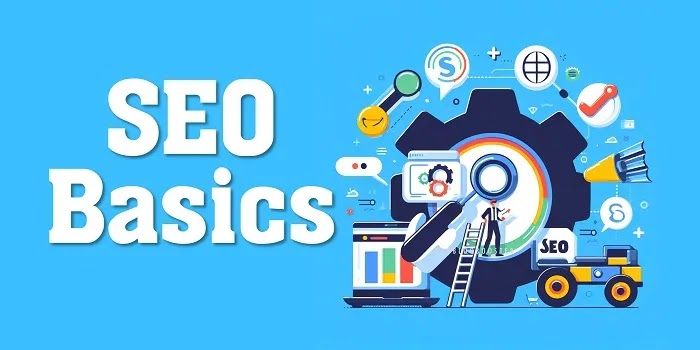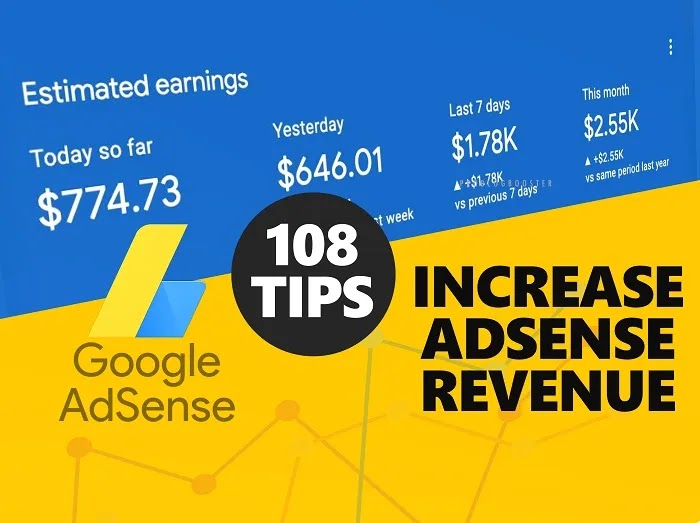WhatsApp offers features to enhance privacy, manage notifications, and improve communication, such as setting disappearing messages, muting group chats, and creating chat shortcuts. You can customize the app with custom chat wallpapers, bold or italicize messages, and even use a disappearing message feature for photos and videos. For convenience, you can pin important chats, reply to specific messages, and listen to voice messages before sending them. Check the most useful WhatsApp tips and tricks, such as how to screen share on WhatsApp. Listed coolest tips to help you get the most out of WhatsApp, from enhancing your app security and privacy to new customization features.
SEO Basics: A Short Beginner's Guide for New and Aspiring Bloggers
SEO —
Welcome, fellow bloggers! Are you ready to take your blog to the next level and boost your visibility on search engines? Search Engine Optimization (SEO) is the key to achieving that goal.
Don't worry if you're new to SEO; in this beginner's guide, we'll walk you through the basics and equip you with the knowledge to optimize your blog effectively.
So, let's digg in and unlock the secrets of SEO success!

What Is Search Engine Optimisation?
First things first, what exactly is SEO? Simply put, it's the process of optimizing your website to rank higher in search engine results pages (SERPs). Search Engine Optimization (SEO) is a set of techniques used to Improve your Blog’s search ranking for a particular keyword.When your blog appears on the first page of search results, it attracts more organic traffic, which can lead to increased visibility, higher engagement, and ultimately, more success for your blog.
The idea is to get more visitors to your blog. The higher your Blog ranks in search engines for a particular keyword, the more likely that it will be displayed in search results. This naturally translates into higher traffic.
Keyword Research: Essential Part for Online Visibility
Keywords are the foundation of SEO. They are the words and phrases people use when searching for information online.To optimize your blog, you need to identify relevant keywords that are popular and have a high search volume.
Recently I posted about What Are Keywords? How Keyword Research Works: For Beginners you must check it. Tools like Google Keyword Planner or SEMrush can help you discover these keywords and understand their competition levels.
How Does SEO Help To Improve A Blog’s Search Ranking?
Whenever someone uses Google to search for a “Keyword”, Google looks for that keyword across the thousands of websites in its database to display a result matching the Keyword.Earlier, the results were displayed solely on the basis of keywords. This made website owners misuse it by stuffing their content with popular and totally unrelated keywords to get more traffic. However, over the years, the Search Engine’s algorithms got smarter. It now takes into account number of parameters before displaying results for a particular query
Although Google keeps it’s Algorithm secret to avoid misuse, various SEO experts have tried to interpret the working of Google Algorithm.
Once you know the factors which Google takes into account, you can then work on improving on those aspects to make sure your Website ranks up higher in search results.
Types Of SEO: Classification of SEO Techniques
SEO Can be classified into two types depending on, at what level you are performing optimization. Following are the two types:1. On-Page SEO Optimization
On-page SEO refers to optimizing individual web pages to improve their search engine rankings.On Page Optimization takes into account all the SEO techniques which you can apply within your blog post to make sure it ranks up higher for a particular Keyword. It includes factors such as using relevant keywords, optimizing post title, optimizing headers, writing quality content etc.
On Page Optimization involves optimizing various elements, including:
- Title Tags:
Craft compelling and keyword-rich titles for your blog posts. This helps search engines understand the content and boosts your chances of ranking higher. - Meta Descriptions:
Write concise and engaging meta descriptions that provide a brief overview of your blog post. Including relevant keywords can improve click-through rates. - Headings and Subheadings:
Organize your content using headings and subheadings (H1, H2, H3 tags). This makes your blog post more reader-friendly and helps search engines understand the structure of your content. - URL Structure:
Create clean and descriptive URLs that include targeted keywords. This makes it easier for search engines and users to navigate and understand your blog post.
2. Off-page optimizations
Off-page optimizations include SEO techniques that can be applied outside your blog. This primarily consists of external link building and improving your social media reach through social media marketing and social bookmarking.With proper Off-page Optimization, you can improve your Blog’s PageRank and Domain Authority. A blog with higher PageRank and Domain Authority is likely to rank higher in search results for a particular keyword. Thus Off-Page Optimization indirectly helps you to improve your Search Rankings.
A lot of people confuse PageRank to be same as Search Engine Ranking. However, this is not true.
PageRank (PR) is a factor designed by Google to measure a Website’s authority and is measured on a scale of 0-10.
Search Engine Return Ranking (SERP) on the other hand is the actual ranking of websites as you see in search results.
On-Page SEO Vs Off-Page SEO
So what should we focus on? On-Page SEO or Off-Page SEO? The answer is both. However, as a beginner, you must concentrate more on On-page SEO as it is directly related to the posts you write. Once you have quality content to show on your blog, you can start focusing on Off Page SEO by promoting your content on social media and writing guest blog posts.This sequence is very important. Most bloggers these days refrain from providing a backlink to a blog with poor content as it negatively affects their ranking. With quality content at your blog, getting backlink would be much easier.
Also if somehow you manage to get a backlink from an authoritative blog, traffic may start pouring in. But a thin content will result in higher bounce rate. Google algorithms are smart enough to realize this and will further demote your blog at the search engine. So always make sure to follow the sequence.
The Building Blocks of SEO: Essential Factors for Effective Optimization
- Quality Content:
Creating high-quality, valuable, and engaging content is crucial for SEO success. Search engines prioritize content that is informative, well-researched, and unique. Ensure your blog posts are comprehensive, easy to read, and provide solutions to your readers' problems. Don't forget to include your target keywords naturally throughout your content to optimize it effectively. - Link Building:
Link building plays a significant role in SEO. It involves acquiring high-quality backlinks from other websites to your blog. When reputable websites link back to your content, search engines perceive your blog as trustworthy and authoritative. Reach out to other bloggers, collaborate on guest posts, and participate in relevant online communities to build valuable backlinks. - Mobile-Friendly Design:
With the increasing use of mobile devices, having a mobile-friendly website is crucial. Search engines prioritize mobile-friendly websites in their rankings. Ensure your blog has a responsive design that adapts to different screen sizes, loads quickly and provides a seamless user experience. - Page Speed Optimization:
Page speed is a critical factor in SEO. Slow-loading websites tend to have higher bounce rates and lower rankings. Optimize your blog's page speed by compressing images, minifying CSS and JavaScript files, and leveraging browser caching. Tools like Google PageSpeed Insights can help you identify areas for improvement. - User Experience (UX):
Providing an excellent user experience is essential for SEO. A user-friendly blog that is easy to navigate, visually appealing, and has intuitive site architecture can attract and retain more visitors. Ensure your blog has clear navigation menus, relevant internal links, and a well-organized layout to enhance user experience and encourage engagement. - Analytics and Monitoring:
To understand the impact of your SEO efforts, it's crucial to monitor and analyze your blog's performance. Set up Google Analytics to track important metrics like organic traffic, bounce rate, and conversions. Analyzing this data helps you identify areas for improvement and make data-driven decisions to optimize your blog further. - Stay Up-to-date:
SEO is a constantly evolving field, with search engine algorithms frequently changing. Stay updated with the latest SEO trends, algorithm updates, and best practices. Follow reputable SEO blogs, attend webinars, and participate in relevant forums to stay ahead of the curve and ensure your blog remains optimized for success.
Frequently Asked Questions
Please take a moment to read through our FAQ section for quick answers to common questions.What are SEO basics?
What is the basic process of SEO?
What are the 5 important concepts of SEO?
What is the base of SEO?
Bottom Line
Congratulations, you're now equipped with the SEO basics to take your blog to new heights! Remember, SEO is an ongoing process, so stay consistent, be patient, and keep optimizing. With time and effort, you'll see your blog climb the search engine rankings, attract more readers, and achieve the success you've been dreaming of. Happy blogging and happy optimizing!To be a successful Blogger it is very important for you to write high quality content as we all know “Content Is The King“. But we also know that a King cannot do anything without his army. SEO is the army of a strong content. A high quality content would be useless if you are not able to use SEO properly to drive traffic to your website. A high quality content along with proper utilization of On-Page as well as Off-Page SEO techniques is “Your Key To Success“
It's important to strike a balance between optimizing your blog for search engines and providing value to your readers. Focus on creating high-quality content that resonates with your audience, and the SEO benefits will naturally follow.









